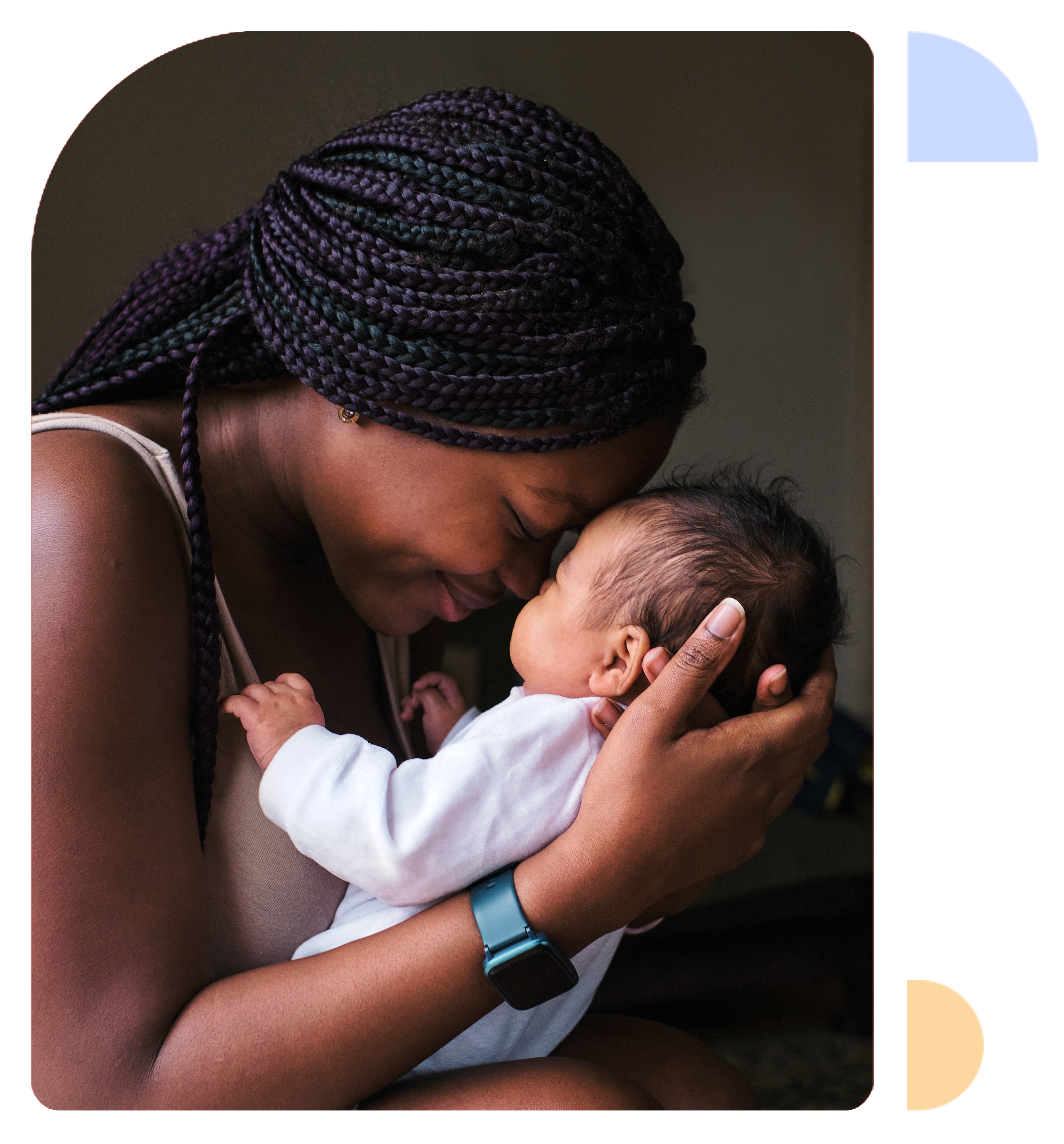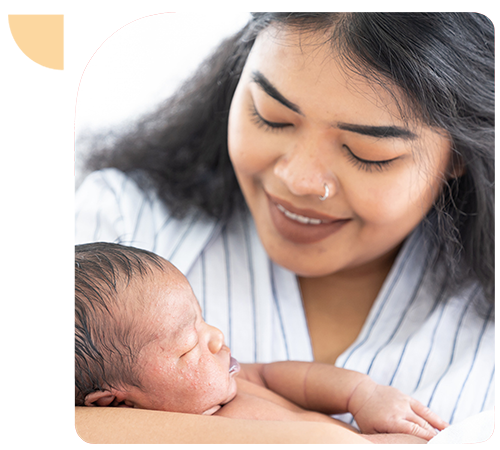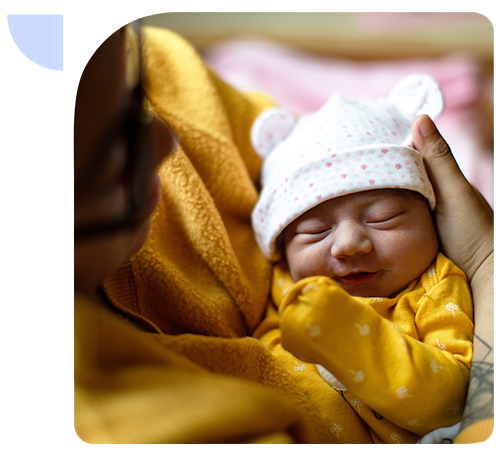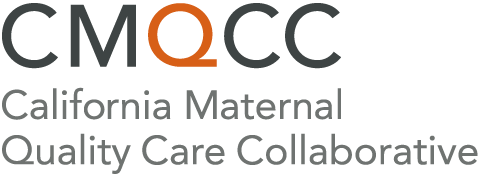Resources for You and Baby
Find trusted information and resources.

Save Your Life
Get help right away with these serious symptoms. Every minute matters.
Call 911 if you have:
Pain in chest, trouble breathing, or shortness of breath
You may be experiencing a life-threatening heart condition or clot in your lung.
Seizures
Seizures may be caused by high blood pressure and need emergency medical care.
Thoughts of hurting yourself or someone else
Help is available. Call 911 or 988, the Suicide and Crisis Lifeline.
Call your healthcare provider immediately if you have any of the following:
Bleeding, soaking through one pad every hour, or blood clots the size of an egg or bigger
Your bleeding could be serious. Your healthcare provider needs to know.
Incision that is not healing
You may have an infection and it could cause serious complications.
Red or swollen leg that is painful or warm when you touch it
You may have a blood clot. Blood clots can be dangerous.
Temperature of 100.4°F or higher or 96.8°F or lower
Several serious or life-threatening medical conditions can change your body temperature, including infections.
Headache that does not get better, even after taking medicine, or a bad headache with vision changes
You may have a dangerous blood pressure condition.
For You
Learn more about changes to your body and mind.

Depression, Anxiety, and Psychosis
If you are depressed, have anxiety, or have other mental health concerns, seek help from your healthcare provider, hospital emergency department, Postpartum Support International (1-800-944-4773), or call 1-800-TLC-MAMA. Learn more
Rest and Sleep
It’s normal for your sleep quality to change after birth. Ask for help so you can nap or rest. Learn more
Leave and Disability
Most workers have the right to job-protected leave from work, with pay, while they recover from childbirth and bond with their baby. Learn more
Mindfulness
Focus on the present moment and what you are grateful for. Learn more
Healthy Eating and Nutrition
Eat healthy meals with fruits, vegetables, lean meats, beans, dairy, and whole grains. Drink 8-10 glasses of water per day. Learn more
Sexual Health and Birth Control
Avoid sex until you are healed (6 weeks) to prevent infection. Talk to your partner and healthcare provider about contraception before having sex.
Managing Pain
Over-the-counter medications like Tylenol or Advil can be used. Ice packs for pain around the vagina or warm pad on the stomach for cramping.
Activities and Restrictions
Start slow, like walking or stretching for 30 minutes/3 times a week to support healing. Learn more
Medi-Cal Resources
If you have Medi-Cal and are pregnant or a new parent, you may be eligible for Transitional Care Services (TCS), which are designed to support you after discharging from the hospital. Learn more
Self-Care
Take care of yourself, too. Do things that make you feel better.
Hemorrhoid Care
Usually disappears a few weeks after birth. Use side-lying position, eat a high-fiber diet, and drink lots of water. Creams and medications (such as docusate) can be used.
Loss of Your Pregnancy or Baby
There will be many ups and downs through the grieving process. It’s okay to be angry or sad. It may help to talk to your partner, friend, family member, and healthcare provider, or Postpartum Support International (1-800-944-4773). Learn more
For Your Baby
Important information to help you care for your child.

Warning Signs and When to Call the Doctor
Call your healthcare provider right away when you feel something isn’t right. Trust your gut. Learn more
SIDS
Always put the baby down on their back to sleep on a firm mattress, no blankets or toys in the crib. Learn more
Safety
Keep your baby safe while sleeping and protected from hazards while awake. Learn more
Baby Carriers
Consider using a baby carrier to keep your baby close. It frees up your hands to move through the day more easily.
Vaccines
Protect your baby from dangerous childhood diseases. Vaccines are safe and effective. Learn more
